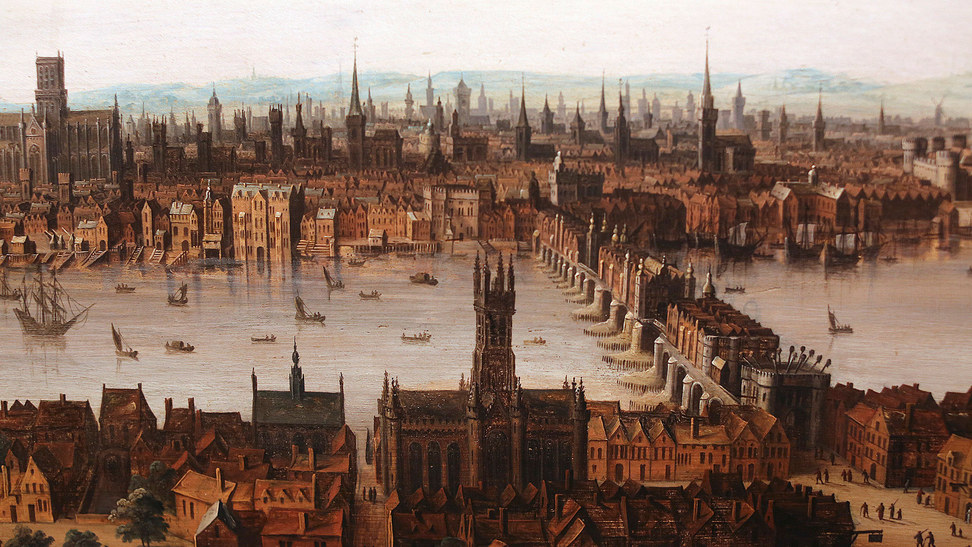 Elizabethan London was thriving; the biggest and richest city in England. As London's population was growing, during Elizabeth's reign it grew from 70,000 to 200,000, London was expanding. Queen Elizabeth didn't actually like the expansion and so she ordered that no new building was allowed to be done outside and close to the city walls. The lack of space inside the city walls meant that buildings were piled practically on top of one another, buildings would grow to be multiple stories high. Due to the lack of space, sanitation and health care really suffered. Diseases such as: the plague, smallpox and syphilis, spread quickly and easily due to how closely packed everything was and the poor sanitation.
Elizabethan London was thriving; the biggest and richest city in England. As London's population was growing, during Elizabeth's reign it grew from 70,000 to 200,000, London was expanding. Queen Elizabeth didn't actually like the expansion and so she ordered that no new building was allowed to be done outside and close to the city walls. The lack of space inside the city walls meant that buildings were piled practically on top of one another, buildings would grow to be multiple stories high. Due to the lack of space, sanitation and health care really suffered. Diseases such as: the plague, smallpox and syphilis, spread quickly and easily due to how closely packed everything was and the poor sanitation.In 1563, London was hit by the worst bought of the bubonic plague the city had ever seen - over 24% of London's population was completely wiped out. In 1578, laws to attempt and block the plague were put in place - if someone in a house hold contracted the disease, then the entire house hold would be on lock down for a minimum of 6 weeks. The close-knit housing again did not help stop spread the plague as well as the general poor sanitation that caused good conditions for the rats carrying the infected fleas.
Due to the River Thames running right down alongside the city, trade was extremely rife during Shakespeare's London. The rate of exploration around the globe had been increasing greatly, which hence therefore affected London's trading. New and more exotic objects, foods and materials were available to those who could afford them. Cakes, soaps, carpets and marmalade were all among-st the different things often traded.
 Bear & Bull baiting were two extremely popular sports throughout the Elizabethan times, with the most famous bear baiting pit, an arena called a Bear Garden, was in Paris Garden in Southwark. Bears and bulls amongst other animals were forced to fight against one another for the audience's amusement. Surviving accounts of bear baiting describe how the crowd would find amusement in the whipping of a blind bear until blood ran down it's shoulders. The last recorded instant of bear baiting is April 12th 1682, when a "horse was advertised to be baited to death."
Bear & Bull baiting were two extremely popular sports throughout the Elizabethan times, with the most famous bear baiting pit, an arena called a Bear Garden, was in Paris Garden in Southwark. Bears and bulls amongst other animals were forced to fight against one another for the audience's amusement. Surviving accounts of bear baiting describe how the crowd would find amusement in the whipping of a blind bear until blood ran down it's shoulders. The last recorded instant of bear baiting is April 12th 1682, when a "horse was advertised to be baited to death." By 1600, there were 20,000 London theatre goers a week and 1 in 3 Londoners watched a play every month. The Elizabethan time was charactercised for the people being able to lack manners, or at least more so than they used to. Theatre audiences would pelt an unwanted actor off the stage with anything they could get their hands on, in turn, the actors would talk to audience members standing in the pit.
No comments:
Post a Comment